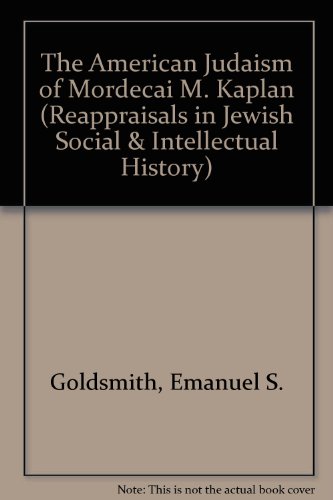Reappraisals in Jewish Social & Intellectual History
1 total work
The American Judaism of Mordecai M. Kaplan
by Emanuel S. Goldsmith and etc.
Published 15 February 1993
This text offers the first full-length study of Mordecai M. Kaplan since his death in 1983. The most distinctive feature is the broad range of perspectives from which Kaplan is viewed. Although most of the essays are appreciative of Kaplan's significance, they are critical rather than hagiographic. Readers will find here an historical context for the life and works of Mordecai Kaplan. Essays dealing with key issues in Kaplan's career focus on the establishment of the Jewish Center, Kaplan's life at the Jewish Theological Seminary, and his relationship to Israel Friedlaender and Milton Steinberg. Kaplan's Jewish and non-Jewish contemporaries, including John Dewey, Henry Nelson Weiman, Ahad Ha-Am, Martin Buber, and A.J. Heschel, are presented in terms of comparison and influence. Kaplan's metaphysics, his interpretation of the Bible, his views on education, economic justice, and the role of women are given full consideration. This work also includes a complete bibliography of Kaplan's works beginning with his first publication in 1907 and ending with those works published posthumously.
